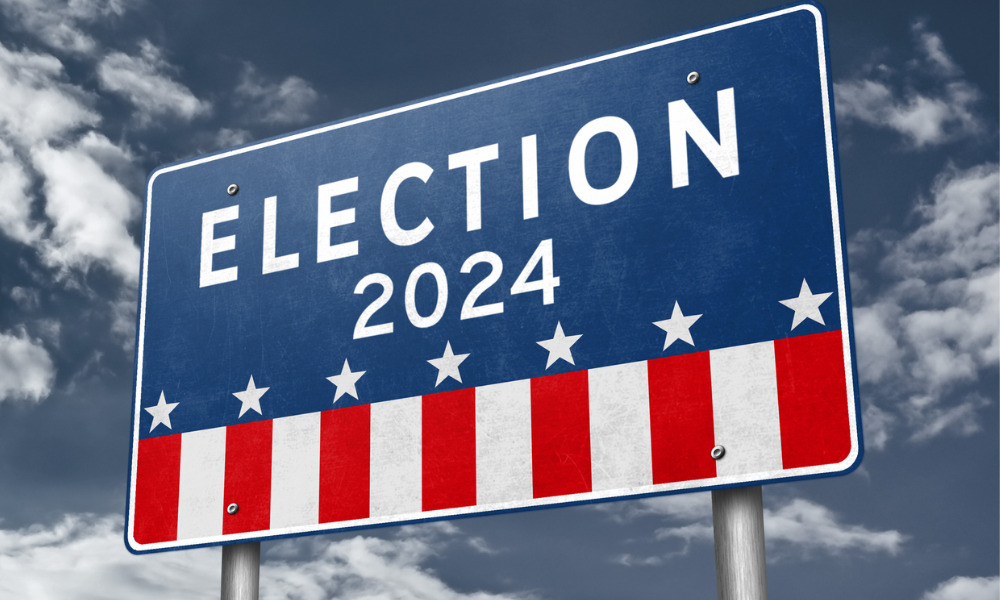Firm president and CEO says performance record of S&P 500 in years after presidential elections offers guidance

As 2023 comes to a close and the new year fast approaching, campaign season is in full swing south of the border.
That means on top of the economic cycle, the impact of now-higher (and for possibly longer) rates, and the ripple effects of broad geopolitical turbulence, many investors are weighing out different scenarios for the upcoming 2024 US general election.
“I do recall when [Donald] Trump was put in office in 2016, a lot of clients calling with concerns about him being in office and wondering what's going to happen as some of his views varied drastically from the prior administration,” Steven Marcus, president and CEO of Raymond James Limited US, told Wealth Professional.
Investors aren’t wrong to be concerned. According to Stephen Way, SVP and head of Global & Emerging Markets Equities at AGF Investments, election years in the US have correlated to higher volatility in equity markets, though they’ve “also demonstrated a more favourable environment for stock picking.
“Interestingly, from a historical perspective, a split U.S. Congress has resulted in the best market outcome, with an average annual return of 11% in election years since 1928,” Way said in a commentary on potential equity opportunities for 2024.
With the caveat that Raymond James focuses on investment advice and not politics, Marcus says it’s instructive to look at how US equity markets have historically performed in the year following a general election year.
Focusing on the S&P 500 index, whose history stretches back 100 years, he says the overwhelming trend is for markets to rise in the year after, irrespective of whether a new administration is elected or the incumbent takes power.
“I can recall only a few times that the market was actually down after an election year,” he says. “One was during the 2008 housing crisis during the Obama administration; nobody could have predicted that. Before that would have been the 2000 dot-com bubble during the Bush administration which, again, was an extraordinary event nobody could foresee.”
In the year after the 2008 elections, the S&P 500 declined by 37%. After the 2000 presidential election, it recorded an approximately 13% negative return. Prior to 2000, the S&P 500 went down 7.8% in the year following the 1960 presidential election, which saw John F. Kennedy take the presidency for the Democrats.
It also dipped 5.5% after Harry Truman and the Democrats secured a come-from-behind victory in 1948; declined by 10.7% after the 1940 Democratic triumph led by Franklin D. Roosevelt, when World War II was brewing; and slumped 11.9% after FDR’s first presidential win in 1932, which coincided with the Great Depression.
“We anticipate an uptick in the market following a new administration coming in, or the re-election of the current administration,” Marcus says. “It doesn't make a difference if the Republicans or Democrats go back in next November; we do predict that the US market will swing upwards.”
According to Marcus, many cross-border clients’ portfolios at Raymond James include dually listed stocks, with both US-based companies and Canada-based companies. As such, it’s critical for them to consider the investment implications of events in both markets.
“If clients were to call us and say ‘Is President Biden going to be re-elected or not? Are the Republicans going to take over? Should we be liquidating our portfolio?’ then I can tell them what’s happened historically,” Marcus says.
“Over the last roughly 100 years, when we’ve seen 23 or 24 elections, this is what’s happened. So we want to position ourselves to make sure our clients can take advantage of an uptick in the market, and not just sitting in something where they don’t get to participate in a potential appreciation.”



